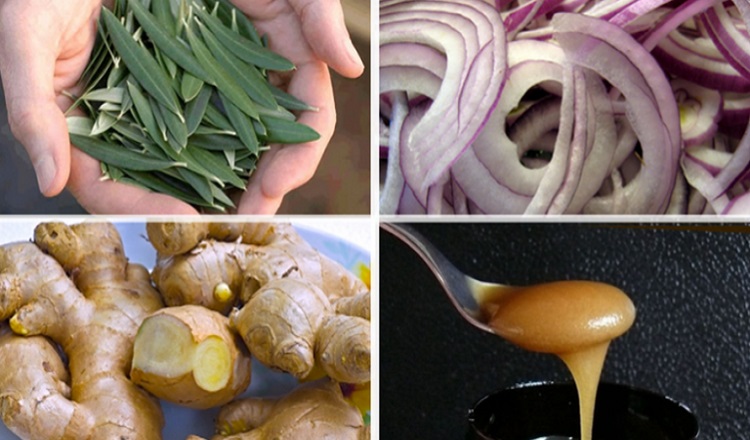Jambul: the fruit that may prevent diabetes, cancer, and heart disease
|
Jamun (Syzygium cumini): The Exotic Fruit with Powerful Health Benefits
In a world where more and more people are turning to nature in search of ways to maintain both physical and mental well-being, exotic fruits are also gaining renewed recognition.
One of the most fascinating among them is Syzygium cumini (also known by its botanical name Eugenia jambolana), a tropical fruit commonly referred to as Jamun or Java plum.
Beyond its deep color and unique flavor, Jamun is packed with health benefits that have made it an integral part of traditional diets and natural medicine in the East.
Originating in tropical Asia and now spread across Africa and Latin America, this fruit is not only delicious with its sweet-and-sour taste, but also a rich source of bioactive compounds that support human health.
Jamun comes from an evergreen tree in the myrtle family (Myrtaceae). For centuries, every part of the tree—seeds, leaves, and bark—has been used in traditional medicine.
Modern studies, including laboratory research and clinical trials, confirm many of these benefits, making Jamun a promising candidate for everyday nutrition.
In this article, we’ll review its key advantages, relying on credible scientific data, so you can consider how to wisely incorporate it into your lifestyle.
Jamun Against Diabetes: Balancing Blood Sugar
One of Jamun’s most notable benefits is its ability to help regulate blood sugar levels, making it a valuable ally for millions of people living with type 2 diabetes or prediabetes.
The fruit is rich in polyphenols, flavonoids, and anthocyanins—antioxidant compounds that positively influence metabolism.
A study published in J Food Science and Technology examined extracts made from different parts of the Jamun fruit (pulp, peel, seed, and core). Results showed that these extracts significantly inhibited α-amylase activity in the intestines, slowing starch breakdown and sugar absorption after meals.
Additionally, all extracts demonstrated strong antioxidant activity, protecting cells from oxidative damage. These findings support the mechanism by which Jamun extracts may help regulate glucose levels by reducing sugar absorption and lowering oxidative stress.
In a prospective clinical trial involving about 15 type 2 diabetes patients over three months, participants consumed daily doses of Syzygium cumini seed powder. Results showed a significant drop in fasting glucose (around 20%) along with improved insulin sensitivity markers. Patients reported better glycemic balance without major side effects.
Another important study in the International Journal of Endocrinology and Metabolism found that treatment with Jamun bark extract for six weeks significantly reduced blood sugar, eliminated glycosuria, and improved insulin and C-peptide secretion.
This is not surprising—Ayurvedic medicine in India has used Jamun for centuries to treat diabetes, and now modern science is confirming its effectiveness.
Moreover, Jamun helps prevent long-term diabetes complications, such as vascular and nerve damage.
If you’re considering adding it to your diet, options include fresh juice or seed powder—both can contribute to better glycemic balance.
Antioxidant Shield: Cellular Protection
In today’s world, where pollution, stress, and processed foods constantly challenge our bodies, antioxidants are our natural defense.
Jamun stands out for its high levels of anthocyanins—the purple pigments that give it its dark color.
These compounds fight free radicals, reduce inflammation, and protect cells from premature aging.
A study published in Molecules highlighted that Jamun consumption significantly increases blood antioxidant levels. This boost reduces oxidative damage to tissues and helps prevent chronic diseases such as cancer and cardiovascular disease.
In addition, Jamun contains vitamins C and A, minerals such as iron and magnesium, and compounds like ellagic acid and kaempferol, which support skin health, strengthen the immune system, and lower the risk of degenerative diseases.
Other research has shown that leaf extracts from Syzygium cumini reduce lipid peroxidation, preventing plaque buildup in blood vessels.
Imagine: a glass of Jamun juice in the morning not only refreshes you but also strengthens your body’s natural defenses against everyday challenges.
Digestive Health
For those suffering from digestive problems, gas, or diarrhea, Jamun may offer natural relief. Its fruit—and especially its seeds—are rich in tannins, which have antiseptic and astringent properties useful in treating dysentery and diarrhea.
Tannin extracts from Jamun seeds have been shown to protect the stomach lining and reduce ulcer risk. Meanwhile, the fruit’s dietary fiber promotes healthy digestion, prevents constipation, and supports gut microbiome balance—making Jamun a natural choice for maintaining digestive health.
Heart and Vascular Health
Heart disease remains the number one killer worldwide, but Jamun offers natural cardiovascular protection.
Its hypolipidemic compounds, such as ellagic acid and betulinic acid, lower LDL (“bad”) cholesterol while boosting HDL (“good”) cholesterol.
Its antihypertensive properties help reduce blood pressure through vasodilation.
Jamun also lowers vascular inflammation and improves blood vessel function, reducing the risk of heart attack and stroke. For those already following a balanced diet, adding this fruit can be a simple yet powerful step toward maintaining a healthy heart.
Anti-Cancer and Anti-Inflammatory Potential
Jamun doesn’t stop there: early evidence suggests anti-cancer potential, largely thanks to anthocyanins and polyphenols that inhibit malignant cell growth.
Its extracts also demonstrate anti-inflammatory effects, reducing inflammatory cytokines and supporting conditions such as arthritis, asthma, and bronchitis.
Beyond this, Jamun contributes to skin and oral health. Its iron and vitamin C content strengthens immunity and helps prevent anemia. In traditional medicine, it has even been applied topically to treat wounds and ulcers, owing to its antibacterial properties.
Recommended Dosages
Scientific studies indicate safe and effective dosages:
- Seed powder: 0.5–1 teaspoon (2–3 g) per day
- Fresh fruit: 8–10 pieces (100–150 g) per day
- Fresh juice: 3–4 teaspoons diluted in water
Conclusion: A Wise Blend of Nature and Science
Jamun is a perfect example of how a simple fruit can provide wide-ranging health benefits. It supports diabetes management, delivers powerful antioxidant protection, improves digestion, promotes cardiovascular health, and shows additional promise against inflammation and cancer.
Try incorporating it into your diet—as juice, in salads, or as seed powder—and discover how nature can enrich your life. In a world where health is one of our greatest assets, Jamun is a smart investment.












